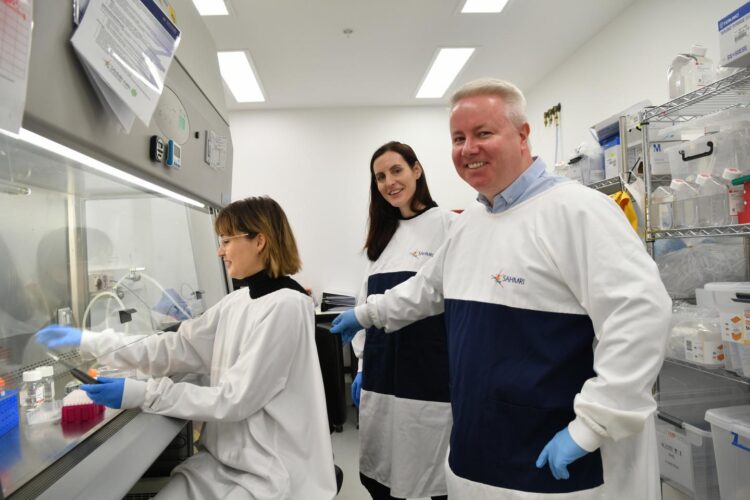Vaccine efficacy link to microbiota, studies show
Varying immune response to vaccinations could be countered with microbiota-targeted interventions helping infants, older people and others to take full advantage of the benefits of effective vaccines, Australian and US experts say.
A comprehensive review in Nature Reviews Immunology concludes that evidence is mounting in clinical trials and other studies that the composition and function of individuals’ gut microbiota are “crucial factors” in affecting immune responses to vaccinations.
“Never before has the need been greater for robust and long-lasting immunity from our vaccination programs, particularly in low and middle-income countries, and for populations at increased risk of infectious diseases such as infants or the elderly,” says lead researcher Flinders University Professor David Lynn, an EMBL Australia Group Leader based at the South Australian Health and Medical Research Institute (SAHMRI).
Vaccine protection is induced by B cells that produce antigen-specific antibodies but T cells also help mediate the protection induced by some vaccines.
“Our study found increasing evidence that gut microbiota – which is highly variable between individuals, over the course of life and between various populations around the world – as a crucial factor modulating B and T cell immune responses to vaccinations,” says co-author, Flinders University PhD candidate Saoirse Benson.
“A better understanding of how the microbiota regulates these vaccine responses may also inform the use of more tailored population-specific adjuvants to enhance responses to vaccinations,” she says.
“There is more we can do to optimise existing vaccine effectiveness by understanding more about gut microbiota and interventions such as prebiotics and probiotics.”
The research group uses germ-free mice, or mice with no microbiome, to assess which bacteria are best at supporting immune responses to vaccination.
Professor Lynn’s research group is also currently analysing the results of a clinical study of how the impact of antibiotics on the gut microbiome of infants may affect immune responses to routine childhood vaccinations.
In separate studies, the lab is also assessing COVID-19 vaccine immune responses and coordinating the Australian BRACE trial funded by the Gates Foundation to test whether the BCG vaccine can protect healthcare workers who contract COVID-19 from developing severe symptoms.
###
The article, Modulation of immune responses to vaccination by the microbiota: implications and potential mechanisms (2021) by DJ Lynn, SC Benson, MA Lynn and B Pulendran (Stanford University School of Medicine) has been published by Nature Reviews Immunology DOI: 10.1038/s41577-021-00554-7
Media Contact
Professor David Lynn
[email protected]
Related Journal Article
http://dx.





